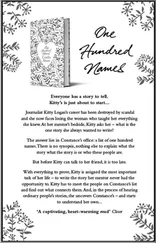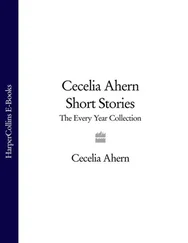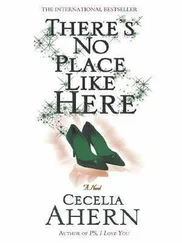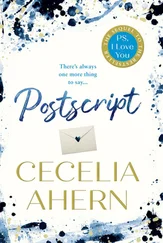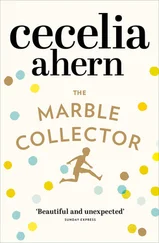Cecelia Ahern - The Year I Met You
Здесь есть возможность читать онлайн «Cecelia Ahern - The Year I Met You» — ознакомительный отрывок электронной книги совершенно бесплатно, а после прочтения отрывка купить полную версию. В некоторых случаях можно слушать аудио, скачать через торрент в формате fb2 и присутствует краткое содержание. Год выпуска: 2014, Издательство: HarperCollins Publishers, Жанр: Современная проза, на английском языке. Описание произведения, (предисловие) а так же отзывы посетителей доступны на портале библиотеки ЛибКат.
- Название:The Year I Met You
- Автор:
- Издательство:HarperCollins Publishers
- Жанр:
- Год:2014
- ISBN:нет данных
- Рейтинг книги:3 / 5. Голосов: 1
-
Избранное:Добавить в избранное
- Отзывы:
-
Ваша оценка:
- 60
- 1
- 2
- 3
- 4
- 5
The Year I Met You: краткое содержание, описание и аннотация
Предлагаем к чтению аннотацию, описание, краткое содержание или предисловие (зависит от того, что написал сам автор книги «The Year I Met You»). Если вы не нашли необходимую информацию о книге — напишите в комментариях, мы постараемся отыскать её.
The Year I Met You — читать онлайн ознакомительный отрывок
Ниже представлен текст книги, разбитый по страницам. Система сохранения места последней прочитанной страницы, позволяет с удобством читать онлайн бесплатно книгу «The Year I Met You», без необходимости каждый раз заново искать на чём Вы остановились. Поставьте закладку, и сможете в любой момент перейти на страницу, на которой закончили чтение.
Интервал:
Закладка:
‘Shame to waste it,’ he says.
We stand staring at the slabs with our hands on our hips.
‘You could make stepping stones,’ he says eventually. ‘Like they’ve done next door.’
We both look into the Malones’ perfect garden and see their heart-shaped stepping stones leading to a fairy house. Eddie wasn’t exactly careful with the jackhammer, so my stones are irregular shapes. It’s more natural that way and I rather like it. The garden centre man goes on his way, leaving me to amuse myself moving sandstone slabs around on my new grass. I improvise, using the end of my rake to decide how deep to position the slabs. Then I measure my stride and lay the stones so that there’s a stone underfoot for each step. I take my half-moon edger alongside the paver, step down on it to cut completely through the turf’s roots. I make an outline of the stone and then strip out the sod. I dig down to a depth equal to the stone’s thickness, then I repeat this process for the ten stones I have leading away from my house towards where the rockery will be. I mix stone dust with water in my new wheelbarrow until it is the consistency of cake batter. I add two inches of mix to each hole to prevent moving or sinking, and then I wiggle the stone into its slot and pound it with a rubber mallet. I use a leveller to set each stone evenly. All this takes me some time.
By six p.m. it is dark and I am sweating, hungry, sore, tired – and more satisfied than I can ever remember feeling. I have completely lost track of time, though at some stages I was conscious of Mr Malone pruning his roses and trimming the overgrowth while telling me in a jolly voice that he should have done this in January and February but couldn’t, not with Elsa so sick.
As I collapse into bed that night, relaxing into freshly changed sheets with the smell of ‘summer breeze’ tumble-drier sheets, I realise that an entire day has gone by without me giving a minute’s thought to my current problems. My mind was well and truly on the task at hand. Maybe it’s the genes I inherited from my granddad, or maybe it’s the fact that I’m Irish, have sprung from the land and this compulsion to dig, and the digging itself, breathes life back into me. I may have walked into my garden all tensed up, but as soon as I started to work, the tension disappeared all by itself.
When I was seven years old, Mum bought me my first bike, a Purple Heather, with a white-and-purple wicker basket in the front, and a bell that I used to love playing with even when I was sitting on the grass with the bike lying down around me. I loved the sound of it, I felt like it was the voice of my bike. I would ask it a question and briiing it would answer. I spent every day cycling out on the street, circling, going up and down the kerbs, fast, slow, braking, almost as if I was an ice skater swirling around with an audience watching me, judges holding up numbers and everyone cheering. I’d stay out for as long as possible in the evenings, eat my dinner so quickly it would be painfully stuck in my chest before racing back out to the bike. At night I cried, leaving it. I would park it outside in the garden and watch it, alone, as it waited for me and our next adventure. Now I feel like that child again, staring out the window at my darkened garden, knowing exactly what will go where, imagining each feature, how I can mould it and nurture it, all the possibilities.
I am having the most delicious dream about Monday O’Hara. He is listing, in complete awe, all the things I have achieved in my garden – which is no longer my garden but Powerscourt Gardens in Wicklow. I shrug off his compliments, telling him I’m a snowdrop and that’s what snowdrops do, no big deal, we’re tough, we push up above the soil, like fists being raised in victory. Things are beginning to get juicy between us when the sound of ‘Paradise City’ intrudes on my dream, blaring from a Tannoy system strapped to the roof of the groundskeeper’s van as he tries to clear the gardens for closing time – which leads Monday to realise that I’m a phoney, that the gardens I’ve shown him aren’t mine after all, that I’m a liar. Then the groundskeeper rolls down his blackened window and it’s you. You are looking at me and smiling, a smile that grows and turns into a laugh that gets louder and louder as the music blares. I awake suddenly to hear ‘Paradise City’ still playing. I squeeze my eyes shut, hoping to get back into the dream with Monday, to pick up where we left off before the groundskeeper ruins it, but when I do fall asleep I find myself in a different dream, with Kevin sitting on the grass, making daisy chains. Everyone around is dressed in black and he is speaking and acting as if he is ten again, even though he looks like the man I met in Starbucks, and when he goes to put the daisy chain on my hand I discover it is actually made of roses and the thorns slice my skin.
I wake up to voices outside. I stumble out of bed, disorientated, and look out the window. You are sitting at the table in your front garden with Dr Jameson. The table is now so worn the wood is chipping and peeling off. It needs to be treated – why this should occur to me as more important than the sight of Dr Jameson sitting outside with you at 3.10 a.m. confuses me. Dr Jameson is facing my house; you are at the head of the table as always. There is a collection of cans on the table and you knock one back, face parallel to the sky as you squeeze the can of every last drop. When you’ve finished, you scrunch up the can and throw it at a tree. You miss and immediately pick up a full can and fire it angrily at the tree. You hit the target and beer foams out from the burst tin.
Dr Jameson pauses to watch where it has landed, then carries on talking. I’m confused. Perhaps he has lost his key to your house and the two of you are too polite to bother me for my set. I find this highly unlikely. You burp, so loudly that it seems to bounce off the end wall of the cul de sac and echo. I can’t hear Dr Jameson’s words, though I want to, and I fall asleep listening to the soothing rise and fall of his gentle tone.
This time I dream about a conversation with Granddad Adalbert. Though I am an adult, I feel like a child again. We’re in his back garden and he is showing me how to sow seeds. Under his watchful eye, I sprinkle sunflower seeds, cover them up with soil and then water them. He is talking to me as though I am still a child. He is showing me how he prunes his winter-flowering jasmine, which he tells me can be pruned when the flowers have withered completely. He shows me how he prunes any dead or damaged wood needed to extend the framework or coverage of the plant, and then he shortens all the side growths from the main framework to two inches from the main stems. This will encourage plenty of new shoots that will flower next winter. ‘Plenty of new growth, Jasmine,’ he says, busily feeding and mulching.
‘This is not a sign, Granddad,’ I tell him in a baby voice that I am putting on, because I don’t want to hurt his feelings by reminding him that I am an adult now. It might make him realise that he has been dead for so long, and that could make him sad. ‘This does not tell me which direction to take,’ I say, but he has his back to me as he continues working.
‘Is that so?’ he says, talking as if I’m babbling and not making any sense.
‘Yes, Granddad. The jasmine is pruned back, but it is ready now, ready to grow, and that is not a sign, that is a symbol.’
He turns around then, and even though I know I am in a dream, I’m sure it’s him, that it’s really really him. He smiles, his face crinkles, his eyes almost close as his apple cheeks lift in that hearty smile.
‘That’s my Jasmine,’ he says.
I wake up with a tear rolling down my cheek.
Читать дальшеИнтервал:
Закладка:
Похожие книги на «The Year I Met You»
Представляем Вашему вниманию похожие книги на «The Year I Met You» списком для выбора. Мы отобрали схожую по названию и смыслу литературу в надежде предоставить читателям больше вариантов отыскать новые, интересные, ещё непрочитанные произведения.
Обсуждение, отзывы о книге «The Year I Met You» и просто собственные мнения читателей. Оставьте ваши комментарии, напишите, что Вы думаете о произведении, его смысле или главных героях. Укажите что конкретно понравилось, а что нет, и почему Вы так считаете.


